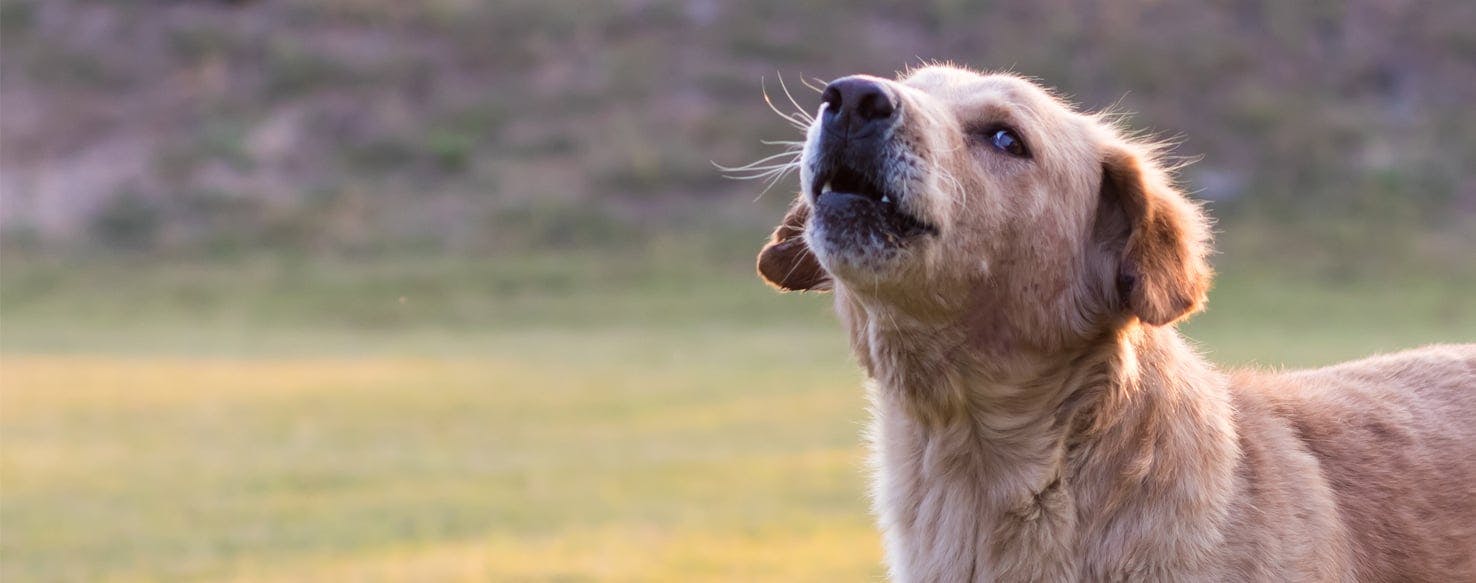- Home
- The Daily Wag!
- Behavior
- Why Do Dogs Howl At The Sun
Why Do Dogs Howl At The Sun

Common
Normal
Introduction
The sunrise makes for a great way to start the day, or for our younger ‘up all night’ audience, end one. If you are with your four-legged friend, they may share your affection for a beautiful sunrise and vocalize their opinions with a delightful howl. Culturally, this can be observed in our movies as scenes of wolves and coyotes howling away at the sun cresting the horizon all over the big screen. It seems synonymous with the canine family. Why do they howl at the sun? Perhaps it is the puppy form of Apollo they hail or recalling the great adventure of Laika, the first dog to journey among the stars.
The Root of the Behavior
Wouldn't that be wonderful? In a world far more grand than our own, these things would be true. However, dogs really howl at the rising sun for arbitrary and mundane reasons. During the night, many nocturnal animals travel around to find food and return to rest at early light. In the early morning, birds take off and the calls of all sorts of beast and bird can be heard across the early morning sky. It is this commotion that brings your dog to life. Chances are he is not actually howling at the sun, but at the many birds, critters, and beasts that can be heard by the dog’s sensitive ears and seen now illuminated by the early morning light.
Your dog can smell and hear at distances far greater than our own and can hear a far wider spectrum of sounds. The same reason applies to your dog howling during a full moon. The light from the sun bounces off our moon and back toward earth and this light illuminates all the creatures of the night which your dog would not see during most evenings. These creatures are likely foreign to your dog, as they do not come out in the day. Even if they are not, then they are at least in a much higher visibility as you can see a rabbit dash in a moonlit sky far more easily than in the dark of a common night. At night and early morning, sounds are also more clear. During this time, sounds travel much further simply because there is less noise around to drown it out. Cars are not on the road and people are not out and about. These things create a lot of vibrations that drown out sounds of what would otherwise carry through the sky. This is referred to as atmospheric disturbance.
Need advice about your pet's health?
Get answers fast from a veterinary professional 24/7 in the Wag! App.
Get Vet ChatEncouraging the Behavior
If your intention is to stop these howls, perhaps as they wake you and disturb your neighbors in the early morning, there are some things that you can do. Knowing that this increased sight and sound is causing them to behave this way, attempt to reduce the contact with the stimulation. If they are in a room removed from the sights and sounds of the early morning, they will not howl. This is not to say stuff them in a closet or something, but perhaps place their dog bed in an area more near the middle of the home with less outside light.
A place of comfort for them to retreat to will often reduce their howling, even if they are not confined to that space. Placing their kennel or dog bed in a removed area of the home with things they enjoy in ready supply around this area will reduce anxiety for any dog. It will also reduce aggression and therefore reduce the barking and howling in most cases where this was not previously provided. However, every dog is different. Contacting a behavioral specialist or a local trainer will allow you to glean more insight into what you can do to change these behaviors and what is causing them in the first place.
Other Solutions and Considerations
There is a strong argument that would indicate many of these behaviors are passed down from generation to generation either through some sort of genetics or early life parental training. Over the course of thousands of years of canine and human companionship and breeding, we have manipulated the behaviors of our friends and in times less developed than now, these behaviors may have been sought after and encouraged. A dog who howls at the first morning light would work as a great alarm clock in days prior to electricity. A farmer who needs to get out to their livestock at first light would find great use, as much use as a hunter who needs to awaken to find the game in the early morning. Dogs with these traits would have been bred more often and therefore, the traits and behaviors they had would be passed from generation to generation.
Conclusion
Though the reasons are mundane and logical, I choose to believe they howl at the early morning light because it inspires their sense of adventure and warms their spirit. Even though it is just as likely they howl at the returning sun because they didn’t think it was coming back when it left the night before.
Written by a Shiba Inu lover Patty Oelze
Veterinary reviewed by:
Published: 02/06/2018, edited: 01/30/2020
More articles by Patty Oelze
